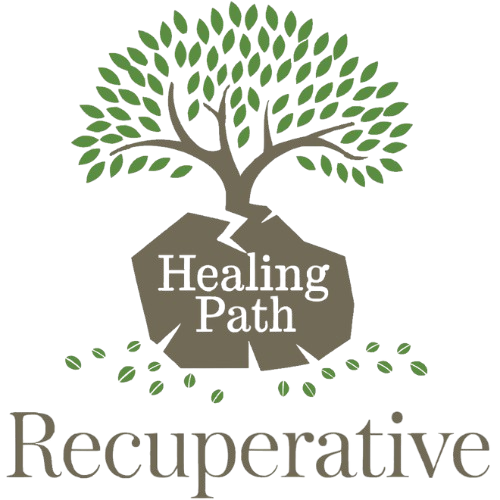A Comprehensive Guide to Healing Path Recuperative Care: Your Path to Restorative Recovery
A Comprehensive Guide to Healing Path Recuperative Care: Your Path to Restorative Recovery
Blog Article

Introduction
In the journey of recovery, whether following a surgery, illness, or injury, the road to regaining health is as important as the treatment itself. Recuperative care, often referred to as healing path recuperative care, is a vital part of this process. It focuses on helping individuals regain their physical and emotional well-being, supporting their body’s natural healing abilities, and providing the necessary care to return to normal life. This article delves into the significance of recuperative care, its benefits, and how it can help individuals on their road to recovery.
Understanding Recuperative Care: The Healing Path
Recuperative care refers to the process of providing specialized care to individuals recovering from illness, surgery, or injury. It can be viewed as a bridge between hospitalization and full recovery. Typically, recuperative care is designed to ease patients out of hospital settings and into their homes, allowing them to heal in a supportive environment that minimizes complications and aids in a smoother recovery.
This care pathway often involves a combination of medical supervision, physical therapy, nutritional support, and emotional well-being practices. The goal is to allow the patient’s body to restore itself, reducing the likelihood of setbacks, infections, or other complications that may arise after a medical procedure.
Key Components of Recuperative Care
Medical Supervision and Monitoring: After an illness or surgery, patients require careful monitoring. Recuperative care often involves visits from healthcare professionals to track progress, manage medications, and monitor any potential complications. Regular check-ups ensure that patients are on track and healing effectively.
Physical Therapy and Rehabilitation: Regaining physical strength is crucial in recuperation. Physical therapy helps patients rebuild muscle strength, mobility, and coordination that may have been lost during illness or surgery. It reduces the risk of long-term disability and promotes overall physical wellness.
Nutritional Support: Proper nutrition plays a vital role in healing. Recuperative care typically includes customized meal plans or dietary guidance to ensure that the body receives the necessary vitamins, minerals, and nutrients to aid in recovery. A balanced diet boosts the immune system and accelerates healing.
Emotional and Mental Well-being: Healing is not just about the physical aspects of recovery; emotional and psychological health also plays a significant role. Recuperative care incorporates mental health support such as counseling or therapy to help individuals cope with the stress, anxiety, or depression that can often accompany long-term recovery.
Pain Management: Managing pain is one of the central aspects of recuperative care. Whether through medication, physical therapy, or alternative therapies like acupuncture or massage, alleviating pain helps improve overall quality of life during the recovery process.
Why Healing Path Recuperative Care is Essential
Prevention of Complications: Recuperative care significantly lowers the risk of complications like infections, re-hospitalization, or setbacks that can impede recovery. Close monitoring ensures that any signs of trouble are addressed early, reducing the likelihood of further medical issues.
Holistic Healing: Unlike traditional hospital care, which primarily focuses on treating the illness or injury, recuperative care takes a holistic approach. It recognizes the body’s need for emotional and mental healing alongside physical recovery, making it easier for patients to achieve a full, lasting recovery.
Customized Support: Recuperative care is not a one-size-fits-all approach. It is tailored to each patient’s specific needs. Whether someone requires assistance with mobility, psychological support, or medication management, recuperative care adapts to ensure the best possible recovery plan.
Faster Recovery Times: When recuperative care is implemented correctly, recovery time is often significantly reduced. With the proper support in place, individuals experience fewer setbacks and a more efficient return to their everyday routines.
Patient Empowerment: Recuperative care often empowers patients to take control of their healing process. With guidance and support, patients are taught how to manage their recovery, which can boost confidence and enhance their mental resilience.
Who Can Benefit from Recuperative Care?
Recuperative care is essential for anyone recovering from an illness, injury, or surgical procedure. However, certain groups may find it particularly beneficial:
Post-Surgery Patients: Individuals recovering from surgery, such as joint replacements, heart surgery, or organ transplants, can benefit from recuperative care that focuses on physical rehabilitation and monitoring post-surgical recovery.
Chronic Illness Sufferers: People living with chronic illnesses like cancer, heart disease, or diabetes often need ongoing recuperative Homeless Minneapolis care to manage symptoms and avoid relapses.
Elderly Individuals: Older adults are often more susceptible to complications during recovery. Recuperative care ensures that they have the necessary support to heal effectively and safely at home or in a specialized care facility.
Accident Victims: Whether recovering from a car accident or a sports-related injury, individuals with traumatic injuries can greatly benefit from recuperative care to manage pain and physical recovery.
Conclusion
Recuperative care plays an integral role in the healing journey, offering the support necessary for a smooth and successful recovery. By providing personalized medical care, rehabilitation, nutritional support, and emotional well-being practices, recuperative care helps individuals heal holistically and with fewer complications.